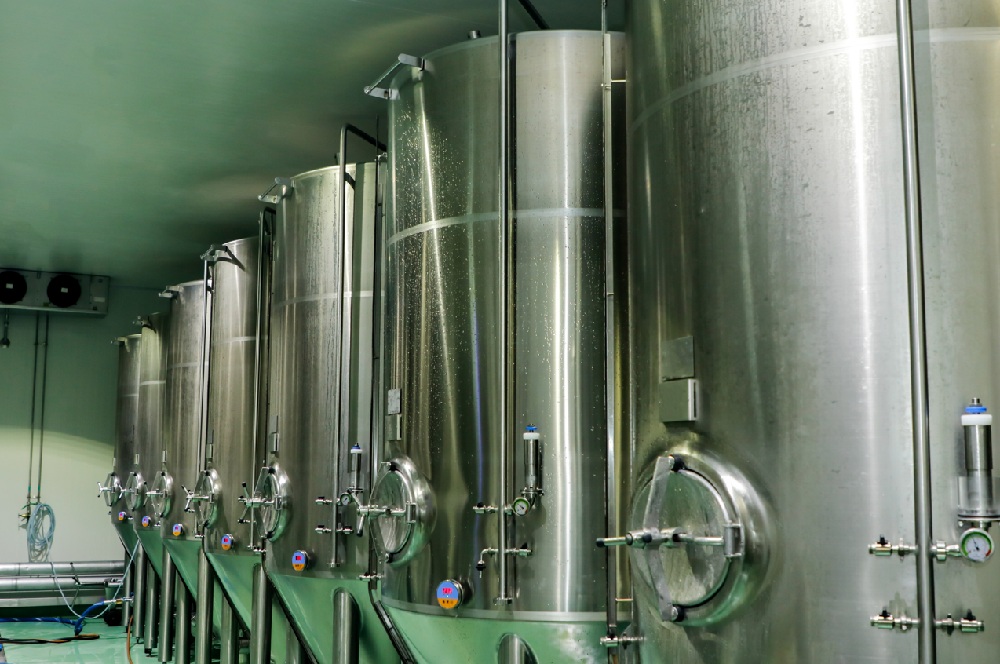Running a food manufacturing business means navigating a complex landscape of safety regulations, operational standards, and consumer expectations. Whether you’re launching a new facility or refining an existing one, strategic upgrades can help you stay compliant while boosting efficiency and product quality.
Here, we’ll discuss five investments that not only support regulatory alignment but also position your brand for long-term success. Let’s dive into them!
Upgrading to FDA-Approved Food Contact Surfaces
Your production surfaces are the frontline of food safety. From prep tables to packaging stations, any material that comes into contact with food must meet FDA standards for hygiene and durability.
If your facility still uses porous or outdated surfaces, it’s time to upgrade to FDA-approved options like stainless steel, high-density polyethylene, or other non-corrosive materials. These surfaces resist bacterial growth, withstand frequent sanitation, and reduce the risk of cross-contamination.
Furthermore, they’re also easier to clean and maintain, which helps your team stay audit-ready. Beyond compliance, this upgrade signals professionalism and care—qualities that resonate with both regulators and customers. It’s a foundational investment that supports every other aspect of your operation.
Installing a Vertical Water Tank for a Reliable Water Supply
Water is one of the most critical resources in food manufacturing. It’s used for washing raw materials, cleaning equipment, processing ingredients, and maintaining hygiene across the facility. But relying solely on municipal supply or small-scale storage can lead to disruptions, especially during peak production or maintenance periods.
An industrial vertical water tank offers a reliable, high-capacity solution. Its upright design saves floor space while ensuring consistent water pressure and volume. These tanks are built to support filtration systems and can be customized for temperature control or chemical treatment, depending on your needs.
By investing in a large water tank, you reduce downtime, improve sanitation, and meet water safety standards more effectively. It’s a smart move for any facility aiming to scale operations without compromising compliance. It also demonstrates your commitment to infrastructure that supports both food safety and operational resilience.
Implementing Routine Cleanroom Testing
If your business handles ready-to-eat products, supplements, or sensitive ingredients, cleanroom environments are essential. Cleanrooms help control airborne particles, humidity, and temperature to prevent contamination during critical stages of production. But simply building a cleanroom isn’t enough—certification and ongoing testing are key to maintaining compliance.
Cleanroom certification ensures your facility meets ISO and FDA standards for air quality, surface cleanliness, and microbial control. Routine cleanroom testing—such as particle counts, airflow validation, and surface swab analysis—helps you catch issues early and maintain optimal conditions. These tests also provide documentation for audits and client assurance.
Investing in cleanroom infrastructure and testing protocols shows your commitment to product integrity and consumer safety. It also opens doors to new markets, especially in health-conscious or export-driven sectors. Cleanroom testing isn’t just a checkbox—it’s a competitive advantage.
Integrating Digital Traceability Systems for Ingredient Tracking
Traceability is no longer optional. With increasing scrutiny from regulators and consumers, food manufacturers must be able to track every ingredient from source to shelf. Digital traceability systems make this process faster, more accurate, and more transparent.
These platforms log batch numbers, supplier details, expiration dates, and processing steps in real time. They allow you to respond quickly to recalls, verify certifications, and streamline audits. For allergen control, organic labeling, and FSMA compliance, digital traceability is indispensable.
Upgrading from manual logs or spreadsheets to a cloud-based system reduces human error and improves data accessibility. It also enhances collaboration across departments and with external partners. In a world where transparency builds trust, digital traceability helps you stay accountable and agile. It also strengthens your ability to meet evolving regulatory demands while maintaining consumer confidence in your brand.
Enhancing Employee Training Programs with Compliance-Focused Modules
Even the most advanced equipment can’t guarantee compliance without a well-trained team. Your employees are the backbone of your operation, and their understanding of safety protocols directly impacts product quality and regulatory success.
Upgrading your training program to include compliance-focused modules ensures that staff are equipped to handle sanitation procedures, allergen management, and emergency protocols. These modules should be interactive, easy to understand, and regularly updated to reflect changing regulations.
Consider incorporating role-specific training, multilingual resources, and digital tracking to monitor progress. Regular refreshers and hands-on demonstrations reinforce learning and reduce mistakes. A strong training culture not only improves audit outcomes but also boosts morale and retention. When employees feel confident and informed, they contribute to a safer, more efficient workplace.
Final Thoughts
Compliance in food manufacturing isn’t just about avoiding fines—it’s about building a resilient, respected brand that consumers and partners can trust. These five upgrades help you align with industry standards while improving operational flow, safety, and transparency.
Whether you’re expanding your facility, entering new markets, or preparing for your next audit, investing in FDA-approved surfaces, vertical water tanks, cleanroom testing, digital traceability, and employee training sets you up for long-term success. Each upgrade strengthens your foundation and supports your growth in a competitive, regulation-driven industry.






